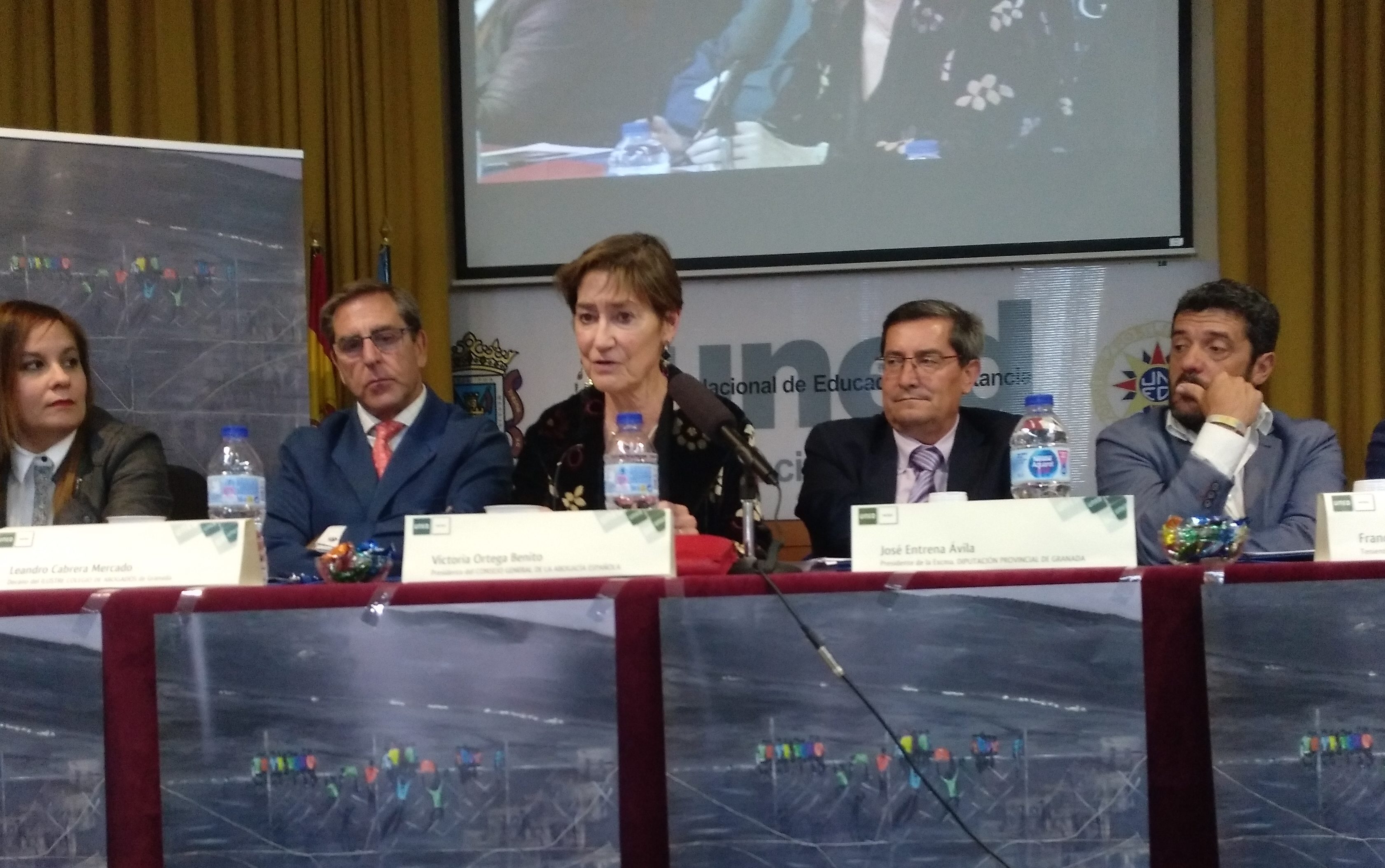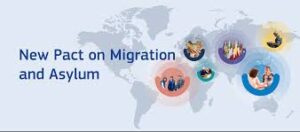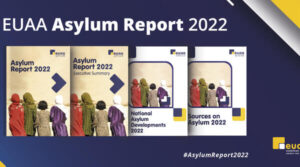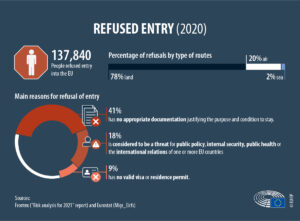- Home
- About Us
- Foundation Abogacía Española
- Work areas
- Migration and Human Rights
Migration and Human Rights
Promoting the human rights approach in legal assistance to migrants and refugees upon arrival in Spain
The southern Spanish border is currently the third route of entry into Europe for migrants and refugees from the Mediterranean Sea. In 2020,, according to UNHCR data, there has been a growth of approximately 30% of irregular entries compared to 2019. The figure rises to 41.000 entries compared to 33.261 the previous year. East increase it is mainly explained for the reactivation of the Canarian route, one of the most dangerous in all of Europe, due to the reinforcement of the controls of migratory flows in the north of Morocco.
Men, women and children are forced to leave their countries of origin due to various circumstances. International law includes the right to migrate and asylum as a human right, as well as the principle of non-refoulement, which establishes the prohibition of states to return people who arrive as refugees to their territory to a country considered unsafe.
This context presents important challenges for Spain in terms of access to the international protection procedure, reception, identification and specific treatment of especially vulnerable groups. The work of the legal profession is essential to prevent violations of fundamental rights that may occur at borders. Therefore, the Consejo General de la Abogacía Española promotes the human rights approach in legal assistance to migrants, and provides, through its Foundation, the necessary specialization to lawyers who intervene at borders.
In recent years, numerous activities have been developed in the field of care for refugees due to the ineffectiveness and lack of political will of the European Union and its members to adequately serve people who arrive on European territory.
The Foundation concentrates its resources on promote a human rights approach in providing legal assistance to migrants and refugees upon arrival on the Spanish coast. To the effect:
- We collaborate in the organization of an annual conference in Motril (Granada), with the aim of making the human rights of migrants visible.
- We contribute to improvement of legal assistance and reception of women, potential victims of trafficking, and the minors who come under their care by Ödos project.













